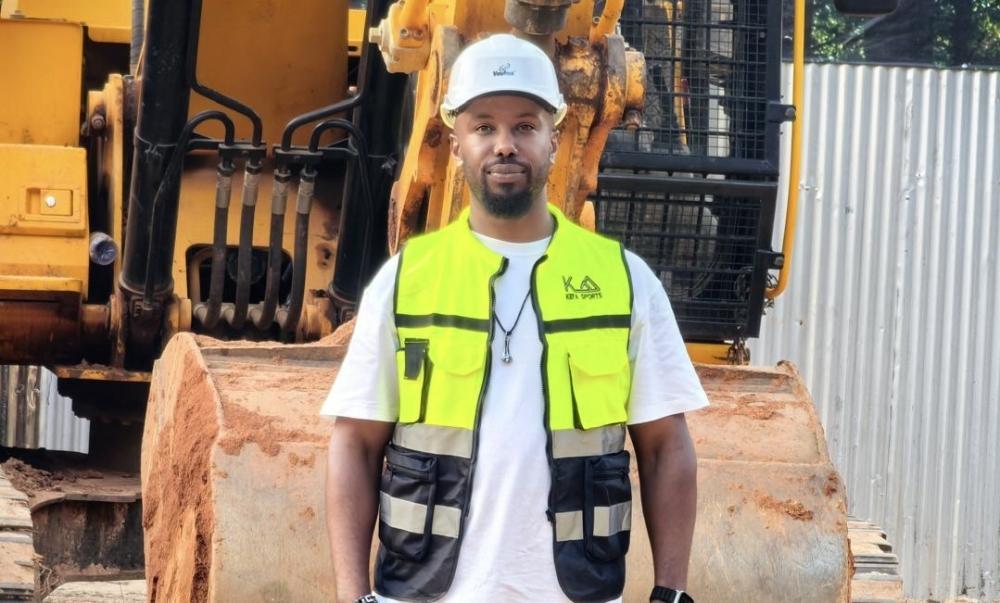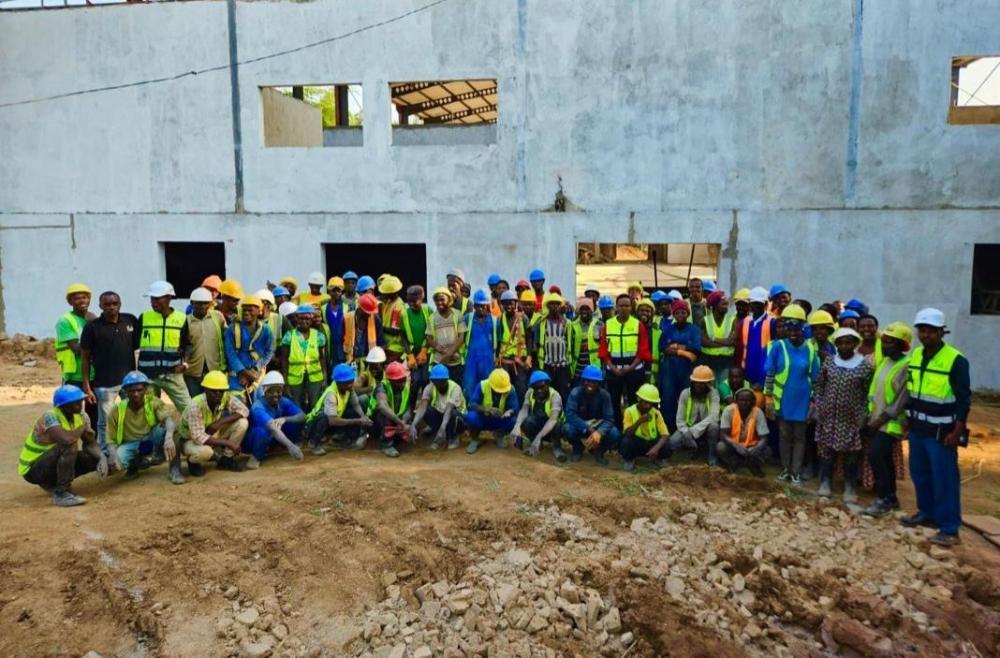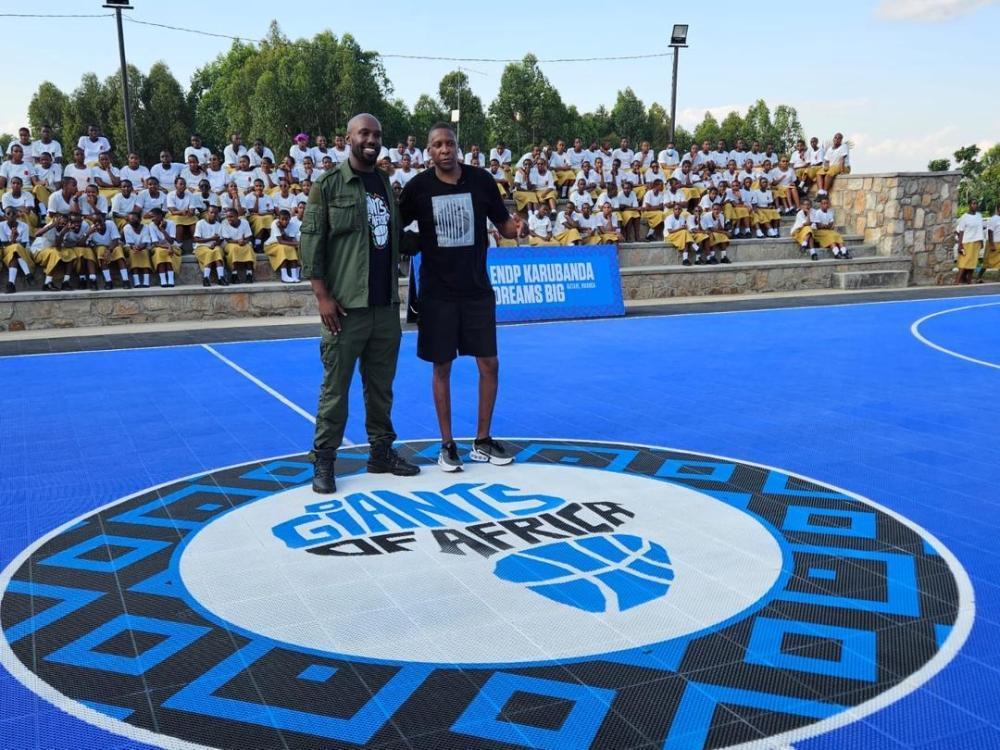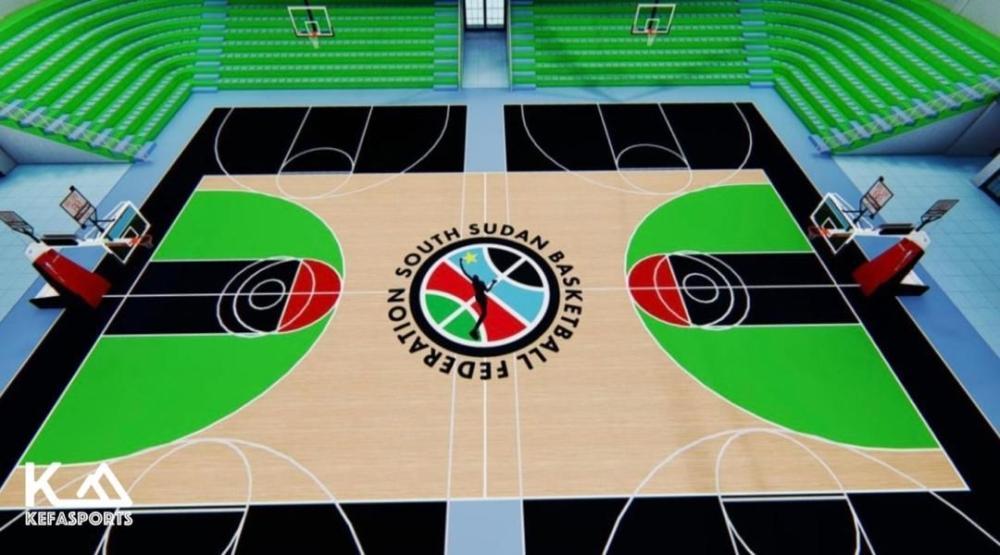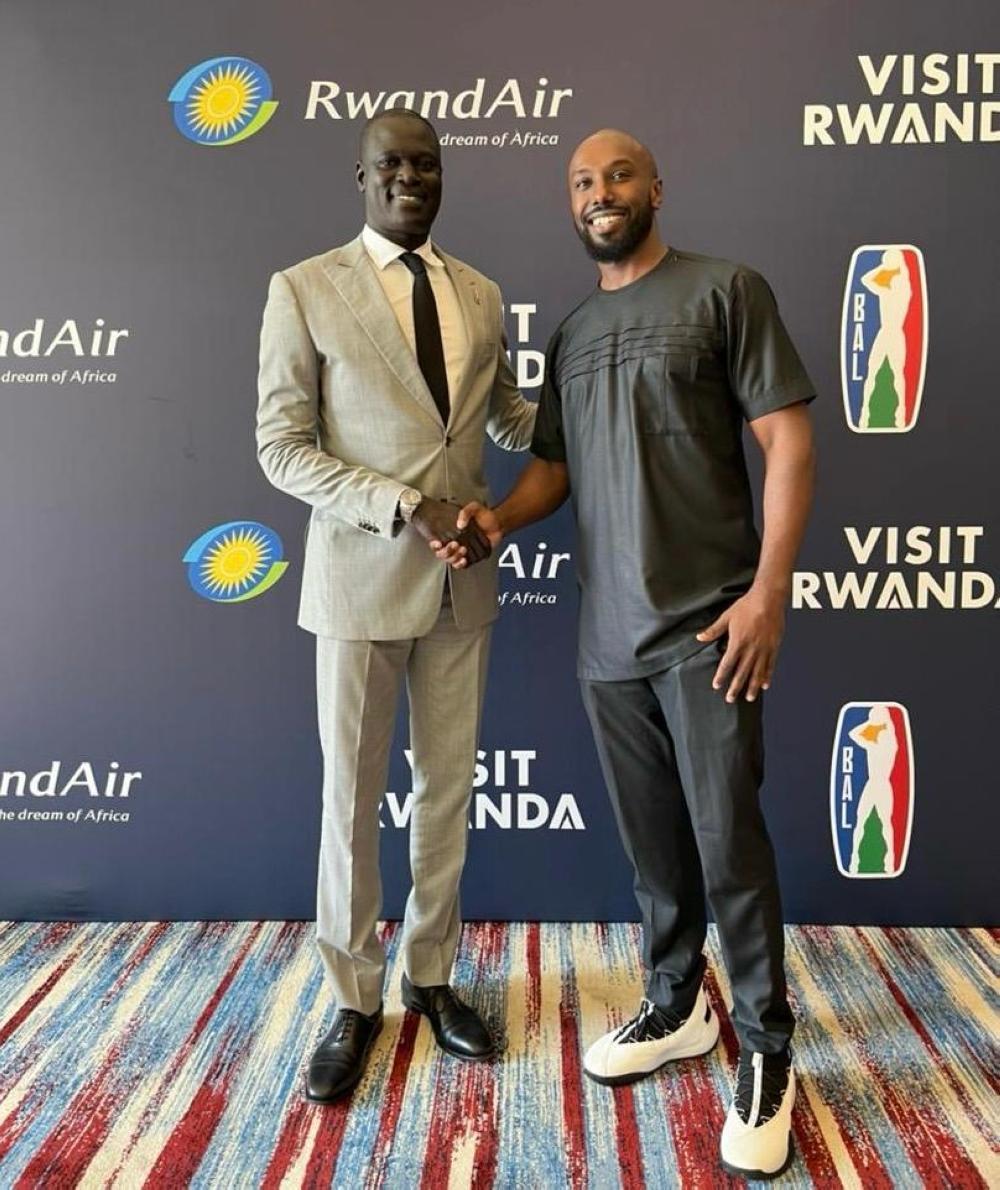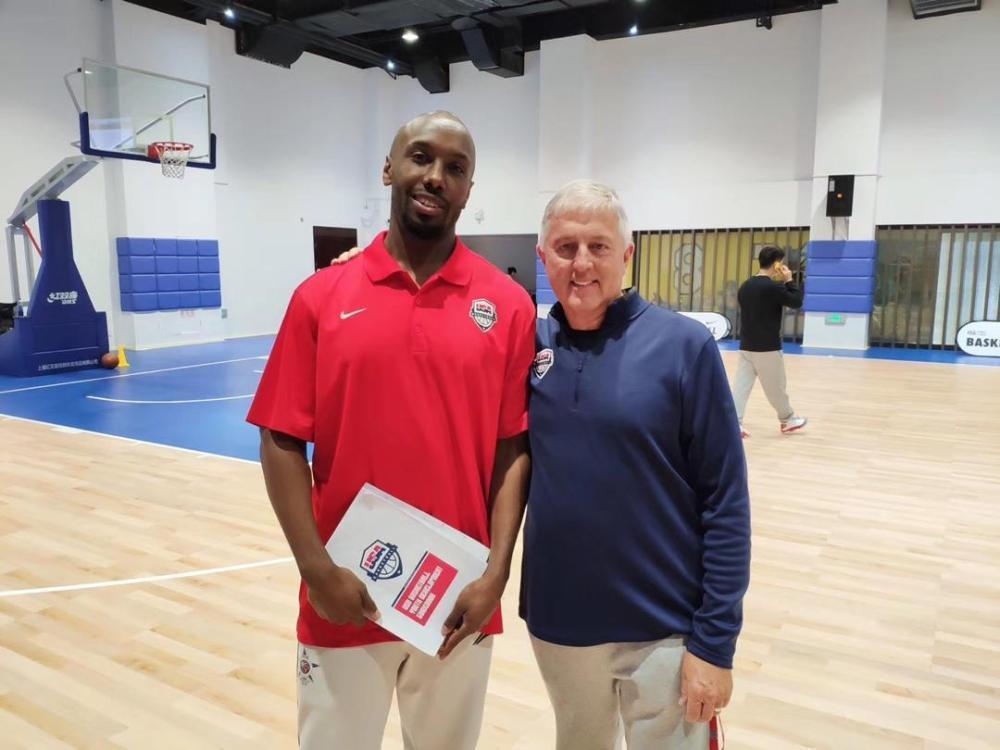Africa-Press – Rwanda. Kefa Karake Shimwayesu, a 35-year-old Rwandan man, is making a name for himself by building high-quality rubber-floor basketball courts, not only in his country but in nations like South Africa, Angola, South Sudan, Uganda, and beyond.
In Rwanda alone, he has built more than 50 courts in the past three to four years. From the refurbished Lycée de Kigali Court which now hosts league games, to a 5,000-seater indoor court that he is currently working on in Juba, South Sudan, Karake is steadily positioning himself as a top facility builder.
Kefa Sports staff at a construction site. Courtesy.
He is the entrepreneur behind Kefa Sports, a company founded in 2016, specialising in sports construction. He boasts an academic background in mechanical design and manufacturing automation, but if you listen to him, you realise that what inspires him most in his work as a sports entrepreneur is the fact that he played and coached basketball.
Standing at 1.94m, the towering Karake played school basketball in Rwanda before moving to Hangzhou, China, for university. There, he continued playing on the university team between 2010 to 2013, before he got into coaching children.
Karake with Toronto Raptors president Masai Ujiri.
While working as a coach in Hangzhou, the owner of the academy where he was employed often sent him to inspect basketball courts in various parts of China. He would check the flooring and basketball hoops for quality.
“That’s basically how the idea started in 2016,” he recalls.
During his time in China, he says, he would return to Rwanda sometimes. He would look at basketball facilities in the country and realise that they were not only few but were also poorly built.
In his mind, he knew that Rwanda could actually afford better facilities, but there had to be someone to take the move to build them. However, he did not have a plan to come back and start a construction company in the country before 2025.
After graduating, he briefly returned to Kigali. He soon realised he didn’t want to work as a conventional engineer. So, he went back to China, earned his coaching license, and resumed coaching, this time more seriously, working with top professionals including players in the Chinese Basketball Association (CBA).
The 5000-seater indoor facility that Kefa Sports is currently constructing in Juba, South Sudan. Courtesy.
When he had saved enough money, he told his bosses that he wanted to start his own franchise. They accepted. So, in 2019, he launched it in China. But meanwhile, his Rwandan passport was about to expire, so he returned to Rwanda in 2020 to renew it, unaware that the Covid-19 pandemic would keep him from going back.
“My plan was to move back to Rwanda in 2025,” he says. “I wanted to start my franchise for five years, sell it to a Chinese company or person, and then return here to do what I am doing now. But when I came, I got stuck.”
All his money and belongings remained in China. He had returned with just a backpack, a few clothes, and some shoes. For three years, he couldn’t access his money because his expired passport was linked to his Chinese bank account.
Karake with youngsters at Gisimba After School Program in Nyamirambo. He provides basketball skills to a number of youngsters in Kigali.
But while all that was happening, something good was brewing. He got his first contract in Rwanda in 2021 to build a rubber basketball court in Huye.
The opportunity came through his friend Fiston, a basketball coach, who told him their school principal wanted to replace a poorly made court, one that had simply been painted over instead of being rubberised.
“He called me and said, ‘Look, we have some money. It may not be enough, but if you’re interested, come to Huye,’” Karake recalls.
“On the road, I stopped in Muhanga. I thought, if I can build a basketball court in each school I pass, this could be a good business and a way to contribute to my country,” he says.
When he arrived in Huye, he met the principal, whom he describes as a good supporter of sports.
“He told me, ‘You’re just getting started, but I believe in what you’re telling me. Based on your experience in China, I’ll give you the contract.’” Karake didn’t have to present five years of experience or prior projects in Rwanda. The principal took a chance on him.
He returned to Kigali, talked to his brother, and asked friends to help fund the project.
“I told them, ‘I have a project. Let’s just build it. I know I’m not going to make a lot of money. I just want to be busy.’”
Karake poses for a photo with Basketball Africa League president Amadou Gallo Fall. Courtesy.
He hired a team, trained them in rubber flooring installation, and got the job done. Before the inauguration, the principal invited guests to see the court. They loved it, and that was Karake’s breakthrough.
“I started getting calls. Then the basketball federation called me and said, ‘We have a project with NBA Africa. We want to renovate Lycée de Kigali.’ That was in 2022, the first NBA contract I got,” he narrates.
Since then, Karake has taken on project after project. He has worked with NBA Africa to build infrastructure in Rwanda and collaborated with government institutions and private organisations like Kepler University.
Now, he’s traveling across Africa to work on even bigger projects like the 5,000-seater court in Juba, South Sudan.
In Rwanda and across Africa, he says one of the major challenges is sourcing materials.
“Our biggest challenge right now is getting materials. We import from China and Spain. I have suppliers in Europe and China. But last year, I bought some machines, and I’m planning to start local production,” he says.
They’re now entering a phase where they hope to produce rubber flooring and eventually artificial turf locally, reducing costs.
He is currently building a school with a sports-focused technical training program essentially a TVET that combines sports with vocational education related to construction.
He also hopes to start an academy and pass on his basketball knowledge to younger generations.
A five-aside court that Karake constructed within the Zaria Courts facility. Courtesy.
An indoor basketball court Karake’s company built in Angola. Courtesy.
Karake (dressed in blue) during his coaching years in China. He says such experience contributed a lot to who he is today. Courtesy.
Karake with Don Showalter, a top basketball coach who serves as the Director of Development at the US Basketball Youth Division. Courtesy.




For More News And Analysis About Rwanda Follow Africa-Press

